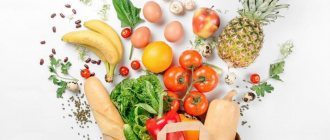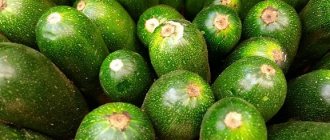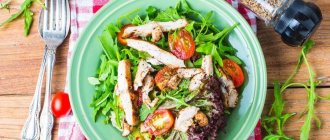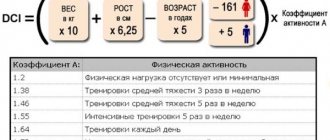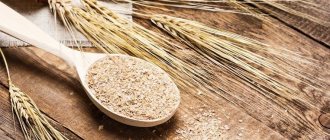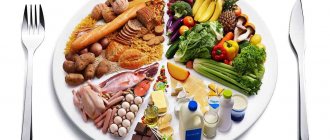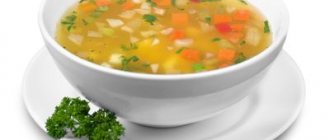Most of the advice from dieters is to eat until you are full. Naturally, this does not mean that you need to fill yourself up with chocolate cake, but rather that you need to choose foods that fill you up with minimal amounts of them eaten.
Many will say that not always a certain amount of food will fill a person, but there are several foods that you can eat to your heart's content without worrying about gaining weight. If someone is looking for a diet where they can eat as much as they want, the following foods will definitely suit them.
Apples and citrus fruits
The body needs sugar to function, but when dieting, you should forget about fizzy cola and sugary treats. Apples should be an integral part of your diet because their soluble fiber and low calorie content will help you lose weight in the long run. Oranges and grapefruits are also easy snacks for weight loss. They contain a large amount of water and fiber, and at the same time have an extremely small amount of calories.
Why do we overeat?
You can overeat due to an incorrect diet or inability to plan your day and meals.
Let's say you didn't eat enough during the day: you didn't have time to have breakfast in the morning, and at lunch you quickly had a snack on the run.
Then in the evening, after all your work, you will most likely want to eat properly, you will have time to cook something or the opportunity to go to a cafe. You will finally be able to relax, please yourself, plus you are more likely to be very hungry... and overeat. The way out of this situation is to plan your meals and take care to feed yourself. Buy groceries in advance, take food with you to work, get up early to have breakfast. Then by the evening you will not be too hungry and tired, and you will not want to overeat. Learn to take care of yourself and not forget about your needs.
Overeating is a frequent accompaniment of diets and strict proper nutrition.
If a person has to eat only the right and permitted food for a long time, then at some point the desire to eat something “forbidden” and harmful overpowers him, and the person overeats and a breakdown occurs.
Those who diet “professionally” even have a legal way to fail - a cheat meal (translated from English: cheat meal: cheat - “cheat”, meal - “meal”). This is such a planned “legalized” overeating for a person who eats right and exercises all week, and on Sunday has a “stomach holiday”. And this is also very harmful, as it can contribute to obesity and the development of type 2 diabetes.
The cause of overeating may be a lack of nutrients.
For example, a person eliminated animal protein from his diet and began to eat a lot. This happens because the body gives a signal to replenish the missing microelements that it previously received from meat or animal products, and now it has to get them somewhere else. The solution is to work on a balanced diet, carefully consider your diet to get all the necessary substances.
Abuse of unhealthy food (fast food, processed foods, sweets, snacks) inevitably leads to overeating.
Such food has low nutritional value: it is high in calories, but extremely poor in protein, healthy vitamins, fiber and complex carbohydrates, which make you feel full for a long time. Semi-finished products and fast food, for the most part, contain fast carbohydrates, sugar and animal fats, so soon after such a meal a feeling of hunger sets in, and you want to eat again.
Perhaps you overeat because you are in a hurry or eat in front of the TV, looking at the computer, phone or book, you do not have the time and opportunity to feel whether you are full or not.
So you can, by inertia, eat much more than you need. Therefore, try to eat slowly and remove all sources of information and irritants.
Eating habits are influenced by childhood experiences.
If your parents or grandmother forced you to eat every last crumb (“Until you eat the porridge, you won’t leave the table!”), you may have gotten used to ignoring satiety signals and eating more than your body needs. Or now you force yourself to finish everything that is on the plate, because “you can’t throw it away.” In this situation, mindfulness helps - observe your feelings while eating and track the moment of satiety. You can also put less food on your plate if you feel bad about throwing it away. Forming your new, “adult” eating habits is not easy, but without them, overeating cannot be avoided.
Eating behavior is influenced by the modern world and consumer culture: - food has become accessible, there is a lot of it, it is tasty, it lies on the supermarket counter, and you just need to reach it with your hand and put it in the basket.
Or you pass by a candy store and smell vanilla (sometimes such places are specially sprayed with appetite-stimulating odors to attract visitors). You drive home and see on the subway, in a magazine, on billboards photographs advertising delicious, beautiful food, and this triggers a desire. You may not be hungry, but the smells, images, and beautiful packaging of food in the supermarket will make you buy and eat something you didn’t even think about a minute ago. This is called externalizing overeating - overeating under the influence of external stimuli.
Frequent cases of overeating can be triggered by psychological reasons, this is the so-called “stress eating.” And this is also very harmful, as it can contribute to obesity and the development of type 2 diabetes1.
These are bulimia (an attack of overeating, followed by a “purging” - inducing vomiting, taking laxatives and diuretics, excessive exercise), compulsive overeating (when a person eats constantly and little by little, without feeling hungry) and binge eating (when in one meal a person eats a huge amount of food, which would be enough for a small company). Typically, such episodes of overeating occur in moments of stress, after a hard day at work or a quarrel with loved ones. Then food becomes an attempt to drown out your feelings: fear, anxiety, anger, rage, irritation, fatigue. If you suspect you have one of these eating disorders, it is best to consult a psychotherapist. Coping with psychological overeating on your own is difficult.
How to lose weight correctly so that the weight does not come back
The fact that most people who lose weight fail to maintain weight after dieting does not prove that you will not succeed either. It’s just that others have not yet read our article and do not know how to lose weight correctly so that the weight does not return, and how to properly exit the diet in order to maintain weight after losing weight. Here are the main recommendations that will help you stay slim for many years:
Tip #1: Lose weight wisely!
No need for exotics, mono-diets or hunger strikes! Choose a diet that is based on the consumption of healthy foods and allows you to provide the body with all the necessary vitamins and microelements.
Tip #2: Watch your calories!
Do not resort to excessive reduction of daily caloric intake. Women are not recommended to consume less than 1200–1400 calories per day. For men, less than 1500–1700 calories.
Tip #3: If you drive more quietly, you will go further!
To prevent the weight from going in the opposite direction after losing weight, it is advised to lose no more than 1.5–2 kilograms per week. In addition, this rate of weight loss is optimal for health. Only people with a deadly degree of obesity can lose 5–7 kilograms per week.
Tip #4: Be sporty!
Even if you are not a big fan of jogging and working out in the gym, try to allocate 20-40 minutes daily for physical activity. This is true both for the weight loss stage and for further maintaining weight at the desired level. Remember: sport helps speed up your metabolism and prevents the deposition of fat in the body.
Tip #5: Be vigilant!
You should not push the scales under the cabinet immediately after they have shown the desired result. To maintain weight after losing weight, it needs to be measured regularly (once every 1-2 weeks). This will allow you to quickly take the necessary measures when an increase is detected: organize a fasting day, go to training, watch your diet.
Tip #6: Diet for life!
Despite the fact that this item is in last place on our list, its role in maintaining weight after losing weight is enormous. You've probably heard the saying: “The best diet is a diet for life!”? I'm not kidding! If you realize that the only way to lose weight and never gain weight again is through a lifetime of healthy eating, you will be successful.
Proper nutrition is based exclusively on healthy and natural products. Naturally, these products must be combined correctly and prepared correctly. At the same time, the range of products is incredibly wide: all fruits and vegetables, herbs, cereals, lean meats, fish, eggs, milk, kefir, cottage cheese, seafood.
Of course, at first it will be difficult for you to give up your favorite pastries and sweets, but nature has provided a solution to this problem: you can always replace unhealthy and high-calorie foods with healthier ones. Honey, dried fruits, bananas, strawberries, marshmallows, marshmallows - all these sweets are much healthier than the usual chocolate bars. The psychotherapeutic method of coding for weight and obesity will help reduce cravings for harmful foods.
By replacing unhealthy foods with healthy, but no less tasty alternatives, you can easily maintain weight after losing weight without any strict dietary restrictions.
Stuffed tomatoes
This summer and unusually fresh dish will appeal to many. For the filling, use fresh vegetables, some nuts and fresh herbs. And to enhance the taste, add a little cottage cheese, which will give the filling a delicate consistency.
Tomatoes can be stuffed with cheese, ham, carrots - almost anything
The editors of uznayvse.ru believe that stuffed tomatoes are best eaten raw. But you can also bake them for two to three minutes in the oven or on the grill. You will get a complete, satisfying snack that will not cause serious harm to your figure. It is better to take low-calorie cottage cheese (3-5%), after salting and peppering it.
Turkey pilaf
KBJU for 1 serving:
~ 355/27/7/46.
You will need:
- turkey fillet – 350 g;
- brown rice – 150 g;
- carrot – 1 pc. (~180 g);
- onion – 1 pc. (~80 g);
- olive oil – 15 ml;
- spices (pepper, turmeric, salt, cumin, barberry, or ready-made mixture for pilaf);
- garlic – 3-4 cloves.
View this post on Instagram
Cut the fillet into pieces of about 2 cm, grate three carrots on a medium grater, finely chop the onion. Fry the onion in oil until golden brown, add the turkey and carrots, simmer until tender. Season with spices and mix well.
Place thoroughly washed rice on top, carefully level it and pour in 200 ml of water so that the rice is completely submerged in water; place garlic cloves on top.
Set the multicooker to “pilaf/stew” mode and leave for 35-40 minutes.
Know your food intake
They have accustomed the body to small but frequent snacks. Slender girls watch their portions. Most often, they have a hearty breakfast and eat much less for dinner.
How to achieve a flat stomach? Three useful yoga exercises
Consequences of overeating
Regular overeating (several times a week) is harmful to health. It leads to weight gain, and extra pounds are a medical condition for a number of health problems: high cholesterol, diabetes, heart disease, hypertension, sleep apnea (stopping breathing during sleep), depression, kidney disease, arthritis.
Read more about the problems that can arise due to systematic overeating:
Heart problems
Overeating can lead to excess weight, which requires the heart to work hard to provide blood to the entire volume of organs and tissues. As a result, the heart muscle thickens and is forced to beat at an accelerated pace. Blood circulation and heart rhythm are disrupted, which can contribute to the development of hypertension, cardiac asthma, and an increased risk of heart attack.
"Fat" liver
Due to excess nutrition, the liver becomes oversaturated with fats and begins to get rid of them in favor of neighboring organs. This contributes to the development of gastrointestinal diseases such as gastritis, cholecystitis, colitis, pancreatitis. In addition, fat affects blood vessels and can lead to atherosclerosis.
Diabetes
The most common result of overnutrition. Regular overeating can lead to insulin resistance and type 2 diabetes.
Joint overload
Excess weight puts a significant load on the osteoarticular system, which is why joints can wear out faster, become deformed and become inflamed.
Hormonal disorders
Excess weight increases the risk of infertility in both men and women. It can cause menstrual irregularities and erectile dysfunction.
Sleep disturbance
Evening overeating can lead to insomnia, nightmares, as well as more serious consequences, such as sleep apnea (short-term cessation of breathing during sleep).
Vegetable soup
This tasty and healthy dish can be prepared in two different ways. First option: add finely chopped vegetables to the broth. Second, puree the soup in a blender. In both cases, the result will be tasty and satisfying, and the main differences will be in the consistency and thickness of the dish.
The lack of protein in vegetable soup can be filled with shrimp.
For soup staples, choose peppers, onions, broccoli, carrots, tomatoes or green peas. Feel free to combine them, add low-fat dairy products (for example, 10% sour cream or Greek yogurt) in reasonable quantities, and get basic first courses for every day.
Steamed fish cutlets
For people who do not eat meat or simply want to diversify their diet with something healthy, we recommend paying attention to fish dishes. Many people bake fish in foil or in a special “sleeve,” but then the finished dish is saturated with its own fat. To reduce calorie content, it is better to eat fish in processed form.
Fish cutlets look pale, but are delicious
For example, use it as minced meat to prepare delicious steamed diet cutlets. How is this better? Excess juice, and with it fat, will drain into the steamer bowl during cooking. Such cutlets are much healthier than fried ones, as they contain less cholesterol, but at the same time they are not inferior to traditional ones in taste.



